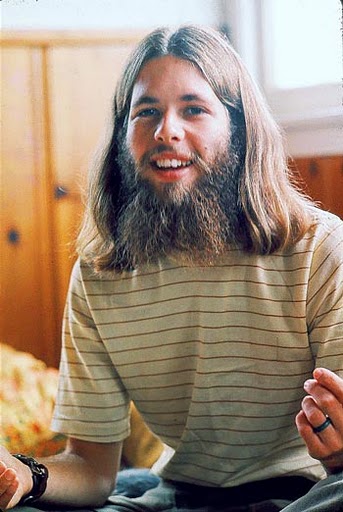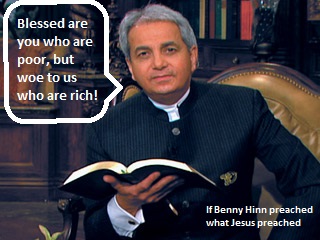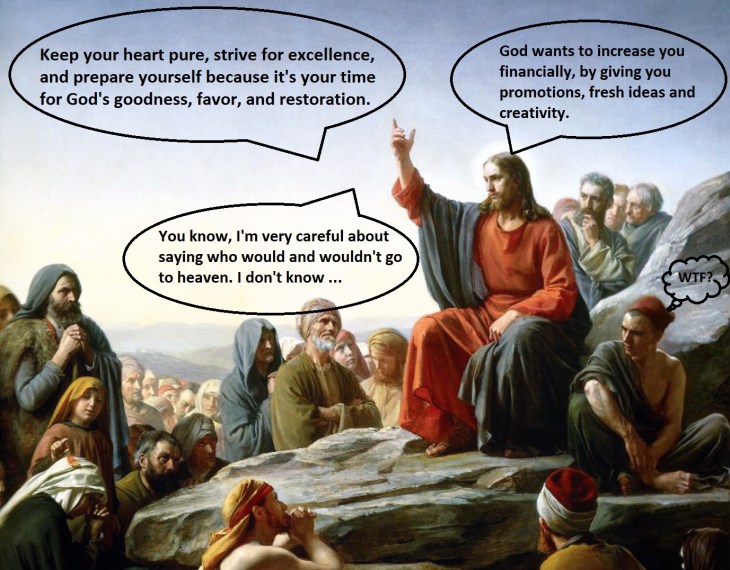Home » Posts tagged 'John Wimber'
Tag Archives: John Wimber
The Amazing Life of John Wimber
In this new episode of my YouTube series Heroes of Faith, I present how Vineyard leader and charismatic apostle John Wimber became a Christian, discovered his Spiritual gifts and advocated social justice as well as revival:
Watch the previous Heroes of Faith episode about Heidi Baker here.
To what extent can a Christian be demonized? Part 1
Guest blog by Lars Gunther.
This is a reworded and expanded version of a comment that I wrote on this blog. Micael wrote a post on the issue of demonization, arguing that a believer can indeed be a victim of demons afflicting him or her from within the body, and thus be in need of having that demon being cast “out”, and not merely cast “away”. It is clear from the depictions of how Jesus defeats the demons that they can dwell within a person and that they upon being confronted with the presence of Jesus sometimes manifest themselves or that they produce loud noises and/or shake the bodies of their victims violently during their departure. (Note that demons in the New Testament do not cause their victims to shout and/or shake all the time, but that this happens as a result of the encounter with Jesus or a follower of Jesus ministering in His authority and power.)
Instinctively western Christians, being unused to these kind of phenomena, may wish to avoid the subject. However, demons are real even if they usually hide themselves. and the question of deliverance being necessary will sooner or later appear for a follower of Jesus, trying to obey his every command (Matt 28:19-20), including the ones to heal the sick, raise the dead and cast out demons (Matt 10:7-8).
In this post I will defend the proposition that Christians can indeed be in need of having demons cast out and the general approach to this topic as it was taught by John Wimber and his associates. (more…)
John Wimber vs Bill Johnson

John Wimber
There are many who have compared John Wimber and Bill Johnson. And they surely are similar: both are white, middle-aged male pastors from California with confusingly similar names. The main parallel people usually draw is that John Wimber in his time (the 80’s and 90’s) was arguably the most influential person in the Western charismatic movement, and the same can be rightly said about Bill Johnson today.
John Wimber, who went home to God in 1997, opened the door to the charismatic Renewal in America’s evangelical community through its healthy and relaxed attitude to the Holy Spirit, in contrast to the hysteria and manipulation that charismatics usually are associated with. His Vineyard movement boomed through church planting, and today it includes over a thousand churches in the world.

Bill Johnson
Bill Johnson is also a laid-back charismatic preacher, his Bethel Church in Redding is a place of pilgrimage for thousands of charismatics, and he gets invited to speak at a variety of conferences around the world. Although Bethel is not a denomination that starts churches, many churches have been impacted and inspired by Johnson.
Johnson has said repeatedly that he is very inspired by Wimber. Both base their charismatic theology on God’s Kingdom. Both have seen many miracles. Both are true prophets.
However. While Wimber is one of my greatest spiritual role models that undoubtedly has shaped my own view of the Spiritual gifts the most, I am not a very big fan of Johnson. Again, I do not deny that Johnson is a man of God who has many good things to say, but I would like to point out a few things where he is very different from Wimber that I think one should be aware of. (more…)
Advent, Miracles and Donkeys
Happy advent! Let us as always read a Bible text that has nothing to do with Christmas, but rather is a prologue to easter:
As Jesus approached Bethphage and Bethany at the hill called the Mount of Olives, he sent two of his disciples, saying to them, “Go to the village ahead of you, and as you enter it, you will find a colt tied there, which no one has ever ridden. Untie it and bring it here. If anyone asks you, ‘Why are you untying it?’ say, ‘The Lord needs it.’ ”
Those who were sent ahead went and found it just as he had told them. As they were untying the colt, its owners asked them, “Why are you untying the colt?”
They replied, “The Lord needs it.” (Lk 19:29-34)
Jesus is not renting a donkey, nor does He ask permission to borrow it beforehand – He simply uses the miraculous gift of prophecy to foresee which donkey owner will allow him to borrow a donkey if they hear that He needs it. It makes me think of 1 Sam 9 where Samuel knows exactly where the donkeys of Saul’s father are. God keeps track of your ass! These prophetic words of knowledge are common today in the charismatic movement, where God gives you information about persons, places or donkeys. My friend Simon Adahl has experienced this countless times, so had John Wimber. Listen to this powerful testimony about words of knowledge on an airplane:
Walking on Water

I was perplexed when I read the Gospel of Matthew for the first time and saw that Peter walked on water. I could not have imagined that in my wildest dreams. In all the children’s bibles and pop culture references I’ve read and heard, Jesus was portraid as the superhero who could even walk on water. But in reality, Peter also did this miracle, without being very super:
Shortly before dawn Jesus went out to them, walking on the lake. When the disciples saw him walking on the lake, they were terrified. “It’s a ghost,” they said, and cried out in fear. But Jesus immediately said to them: “Take courage! It is I. Don’t be afraid.”
“Lord, if it’s you,” Peter replied, “tell me to come to you on the water.” “Come,” he said. Then Peter got down out of the boat, walked on the water and came toward Jesus. But when he saw the wind, he was afraid and, beginning to sink, cried out, “Lord, save me!”
Immediately Jesus reached out his hand and caught him. “You of little faith,” he said, “why did you doubt?” And when they climbed into the boat, the wind died down. Then those who were in the boat worshiped him, saying, “Truly you are the Son of God.” – Matthew 14:25-33, NIV
Now, Peter shows some amazing faith and courage here! I mean, I would have been fully satisfied with Jesus’ answer “It is I. Don’t be afraid” and said “Awesome, welcome into our boat.” Instead, Peter loves Jesus so much that he wants to join him on the stormy ways, as long as he knows that it truly is Him.
(more…)
Lonnie Frisbee and his Charismatic Hippie Communal Houses
Lonnie Frisbee was an amazing Jesus freak. Being a key figure and informal leader of the Jesus People Movement in the 60’s and 70’s, his impact on Western Christianity is huge. With his long hair and beard he tried to look like Jesus himself “because there’s no one else I want to look like”, he preached on the beaches to his hippie friends that the Holy Spirit is even better than LSD and brought thousands of them to church.
The Jesus movement spread rapidly across California, US and the world, but most churches closed the door for them – after all, they were hippies. A church that did welcome them though was Calvary Chapel led by Chuck Smith, not because he was a hippie, nor because he wanted to become one, but because he liked them.
While Chuck emphasized Bible studying and evangelical values (which Lonnie thought was awesome) Lonnie himself was a holy roller. He cast out demons, spoke in tongues, healed the sick and prophesied loudly. He proclaimed himself to be a prophet and a mystic, and the whole Jesus Movement became a radical charismatic movement.
In 1980 he visited John Wimber‘s Vineyard church and released the youth into full scale charismatic renewal, which had a huge impact on Wimber himself and the whole third wave charismatic renewal. In John Wimber: The Way it Was, John’s wife Carol Wimber shares how important Lonnie was for the Vineyard, and she has some awesome testimonies from a trip to South Africa she, John and Lonnie made where they literally saw the blind and lame being totally healed when they imparted the power of the Holy Spirit to them.
Why Don’t We Serve on Sunday Services?
In this clip, my favourite theologian John Wimber shares how he thought a church service looked like before he, as a newly converted believer, had ever visited one. He thought that people met at church, worshipped, had a good time and then decided who should go where: “You go downtown, I’ll take Anaheim”, etc. Then they would go out, heal some sick, cast out some demons and lead a few people to Christ, and then they would have lunch afterwards.
Unfortunately, John’s church wasn’t like that. After having attending a whole bunch of boring services he once asked his pastor “When are we gonna do the stuff?” “What stuff?” “You know, the stuff Jesus did – healing the sick, raising the dead” “Well, we don’t do that anymore. You just have to believe that it was done once.” John was confused and asked “What do we do then?” “What we did last morning!” John gasped: “For this I gave up drugs?”
I had similar thoughts when I was a new believer. I always thought it was strange that the church meetings were called “services”, since 95% of the people in my church weren’t serving very much. In fact, we hardly did anything except singing a few hymns and walking to the altar to receive communion.
When I later on joined a charismatic church the singing part got a bit more active, but beside that you didn’t do anything in church except receiving – receiving a sermon, receiving prayer or receiving a cute song from the Sunday school group.
(more…)
The African Worldview is the Biblical Worldview: A Response to Conrad Mbewe

Conrad Mbewe
All right, I will soon stop talking about Strange Fire (most of my Swedish Christian friends have no idea what I’m talking about when I mention the conference, John MacArthur or even cessationism – those things aren’t so hot over here) but I have to comment Conrad Mbewe’s lectures before I move on to funnier things. Being the only non-Western speaker at the event, Mbewe shared his opinions on the charismatic movement in Africa. Those opinions were negative, to say the least. You can find transcriptions of his lectures here and here.
Mbewe’s main argument is that the popularity of the “charismatic chaos” in Africa is caused by how well it fits with traditional African spirituality. They share the same worldview. In African animism, belief in spirits is prevalent, and people go to the witchdoctors to be healed, delivered from evil spirits and to have prosperous crops. African charismatics behave just the same – they go to the “man of God” to be healed, delivered from evil spirits and to prosper. Thus, Mbewe argues, charismatic preachers are just like witchdoctors.
When I saw how Mbewe talks about worldviews, I immediately got flashbacks to good ol’ Power Evangelism by John Wimber. He dedicates a whole chapter to worldviews and describes the African and other non-Western worldviews in the same manner as Mbewe does – it is a worldview where the supernatural is natural and where supernatural healing, prophetic messages and deliverance from spirits are part of normal life. However, Wimber rightly argued that this is the biblical worldview as well.
A Response to Tom Pennington’s Seven Cessationist Arguments

Tom Pennington
While the strange Strange Fire conference mostly was dedicated to accuse the majority of charismatics for being weird, heretic non-Christians (yes, John MacArthur did say that most of us are non-Christians), at least one session was about the root cause of these people’s uncomfortability with the charismatic movement: their cessationist belief. I gave a short summary of why I think cessationism is unbiblical in my previous post, but I felt that the cessationist arguments given at Strange Fire were so bad that I cannot let them pass unanswered. The session was held by Tom Pennington and here are a short summary and a longer transcription of his lecture.
Before Pennington even starts to give his seven “biblical” arguments for cessationism, he admits that “the New Testament nowhere directly states that the miraculous gifts will cease during the church age.” Amen to that. But then he simply states that this is irrelevant “because the New Testament doesn’t directly say they’ll continue either.”
Wow, now I feel tempted to produce my own gospel. I don’t like to pray very much, so I’ll just preach that we don’t have to pray in the post-apostolic age. And if someone would say to me “The Bible actually never says that we should cease to pray” I will simply answer “it doesn’t directly say we should continue praying either.”
For a Bible-believing Christian who thinks that we should base our lives on the life and teaching of Christ, the burden of proof lies on the cessationist, not on the continuationist. Jesus commanded his disciples to heal the sick and cast out demons (Mt 10:6-8), and then he ordered them after His miraculous resurrection to teach their disciples everything He had commanded them (Mt 28:20). It’s Tom Pennington’s job to prove that we should not do the stuff that Jesus and His disciples did, the burden of proof does not lie on the charismatics.
All right, here are Pennington’s arguments:
1) “There were only 3 primary periods in which God worked miracles through unique men. The first was with Moses; the second was during the ministries of Elijah and Elisha; the third was with Christ and his apostles. The primary purpose of miracles were to establish the credibility of one who speaks the word of God—not just any teacher, but those who had been given direct words by God.”
I thought people didn’t believe in the “three miraculous periods” stuff anymore. The book of Judges is filled with miracles and prophecies. The book of Daniel as well. Genesis, Isaiah, Jonah – they all account for amazing miracles. And the whole Bible is per definition filled with the gift of prophecy!
Why Cessationism is Unbiblical, Irrational and Boring
John MacArthur is one of the leading cessationist theologians of today (cessationist meaning someone who thinks the miraculous gifts of the Spirit have ceased), and you may remember his name from my post What if Jesus Preached what Modern Preachers are Preaching where I tried to show how stupid it would look if Jesus had said what MacArthur is saying. MacArthur’s teaching has been widely criticized by many, and one of the best rebutals is in my opinion Jack Deere’s Surprised by the Power of the Spirit, where he explains how he went from being a cessationist to a charismatic evangelical and where he basically brings up all cessationist arguments used by MacArthur and crushes them to little tiny pieces.
It seems like MacArthur has changed tactics since then. Right now he is organizing a conference called Strange Fire which isn’t arguing for cessationism so much as it is accusing the majority of the charismatic movement to be heretic, demonic and a dangerous cult. Nothing new, already G. Campbell Morgan said that Pentecostalism is “the last vomit of Satan”, so MacArthur is basically continuing an embarassing evangelical tradition of demonizing Christians who don’t agree with him.
MacArthur’s argument is of course ridiculous and its main accusation, that most charismatics offer false worship, is non-valid since even if you disagree with charismatics you have to admit that their worship to Jesus is extremely passionate compared to many other churches. But I’m not going to waste ink on arguing for the sanity of the charismatic movement but bring the discussion back to its original issue: the cessation or continuity of the gifts. In my opinion, it is cessationism that is truly “strange”, it’s an unbiblical, irrational and, quite frankly, very boring theology.
Cessationists do not argue that all gifts of the Holy Spirit ceased with the apostles, simply because knowledge, compassion and faith (Rom 12:8, 1 Cor 12:8-9) clearly are still around. Instead, they argue that the supernatural gifts of the Spirit have ceased while non-supernatural (like the ones I just mentioned) are still here. Problem is: this distinction is totally unbiblical. When Paul talks about Spiritual gifts he never categorised them in supernatural and non-supernatural, and he doesn’t label some cessational and others continual.
What if Modern Preachers Preached What Jesus was Preaching?
It’s finally here – the sequel to the extremely popular post What if Jesus Preached What Modern Preachers are Preaching! Get ready for…
What if Modern Preachers Preached What Jesus was Preaching?
John Wimber: Justice Goes Hand in Hand with Revival and Renewal
“Sometimes I wish we still were Quakers”, Christy Wimber said this morning at the Nordic Vineyard Summer Camp, which I am currently enjoying. Christy belonged to the Yorba Linda Friends Church where John Wimber and his family worshipped, and joined them as they got kicked out of it when they started to heal the sick and baptize converts. She has been a Vineyarder ever since and married one of John’s sons. But she still wishes she was a Quaker.
I can see why. Quakerism, with its teaching on radical discipleship, pacifism and social justice, never left John either. I’ve already collected some quotes from him about poverty and social justice, but now I got hold of a book here at the conference, The Way In is the Way On, where chapter three is totally devoted to John’s teaching about this issue. Here’s an excerpt:
I love to teach on social justice! It really is one of my passions. Justice always go hand in hand with true revival and renewal of the Spirit. Justice – setting things right for the poor and marginalized – is one of the primary purposes for God sending His Son into the world. He came in order to set things right. Great leaders in the history of the church have always understood the relationship between faith and justice. There has never been a movement of God started on fire that did not have a ministry to the poor.
The Role of Suffering in the Charismatic Movement
We have now entered the holy week, the last step of lent in which the liturgical year remembers the passion, that is suffering, of Jesus. In my experience, it is not so common among Pentecostals and Charismatics to talk about suffering as something achievable. Rather, our emphasis on healing has often made us think that pain is always evil. And while I am convinced that we should always pray and work to alleviate involuntarily suffering, we should also be ready to suffer for Christ’s sake – and even count it as a joy! (Mt 5:11-12)
After all, we follow a crucified God who told us to take up our crosses and follow Him (Lk 14:27). He told us that we should expect persecution and turn the other cheek when attacked (Mt 5:39). We are also told in the Scriptures that we will experience spiritual trials and hardships (Jam 1:2ff.).
This may seem hard to sync with the Kingdom message of fighting suffering through healing, deliverance, poverty reduction and peacemaking. But it is one of the Kingdom paradoxes – while we should alleviate suffering, we should be ready to suffer. We should not seek suffering or be happy when others suffer, but when we are affected by suffering, which undoubtedly will happen from time to time, we should not interpret it as being abandoned by God but see it as a humiliating experience for us to identify ourselves with Christ.
Many Charismatics who experience a lot of miracles and breaktrough has also gone through deep pain. Smith Wigglesworth, the British Pentecostal healing preacher who raised several from the dead, lost his wife in the beginning of his ministry, and he himself got very sick in kidney stones. John Wimber prayed för thousands of people who got healed, but he died in a very painful fight against cancer. Heidi Baker is living in revival in Mozambique but just before the breakthrough she, her husband and her daughter were very, very sick and they had barely any money to continue.
(more…)
How to Spread the Gospel
As a John Wimber-inspired charismatic, I am convinced that signs and wonders are wonderful for spreading the Gospel. It’s hard to convince people that God exist if they can’t see His power. Furthermore, as a Christian activist, I am convinced that love, servanthood and good deeds are wonderful tools for spreading the Gospel. It’s hard to convince people that God loves them if we don’t express love to them. And as an evangelical, I am convinced that preaching is a wonderful tool for spreading the Gospel. It’s hard to convince people that God can give them salvation if you don’t tell them.
In other words, I fully agree with these three schools of thought. However, I have met countless of times Christians who argue that one of these evangelism strategies is much better than the other two and must be prioritized.
I’ve listened to a charismatic preacher at a healing conference who basically said that the power of the Holy Spirit is the absolutely most vital in evangelism, more vital than doing good deeds.
I’ve talked with a deacon who argued that doing good deeds is much more important than actually using words, quoting S:t Francis famous words “Always spread the Gospel, and when necessary, use words” (although he actually never said that, but that’s another story).
(more…)














